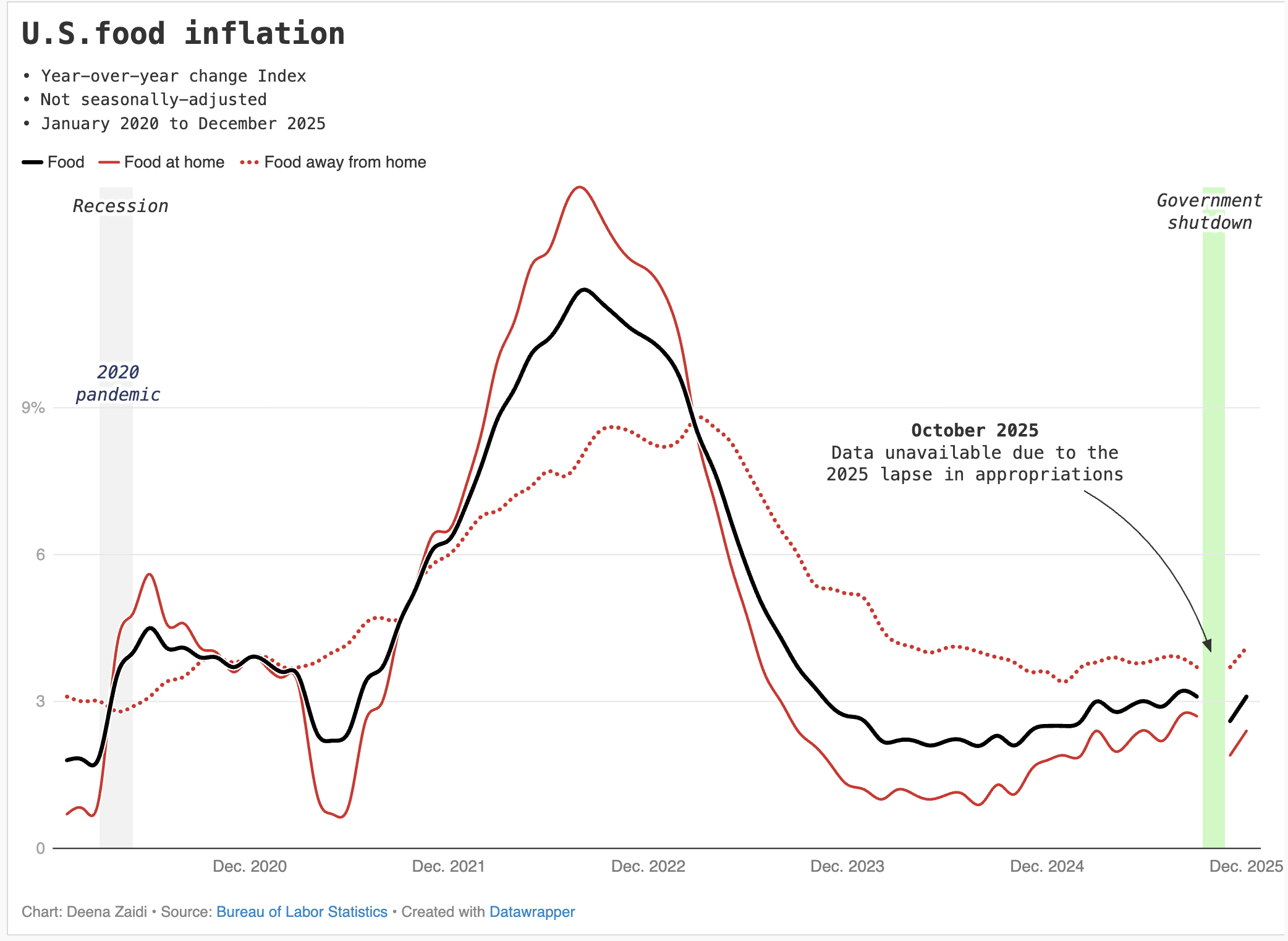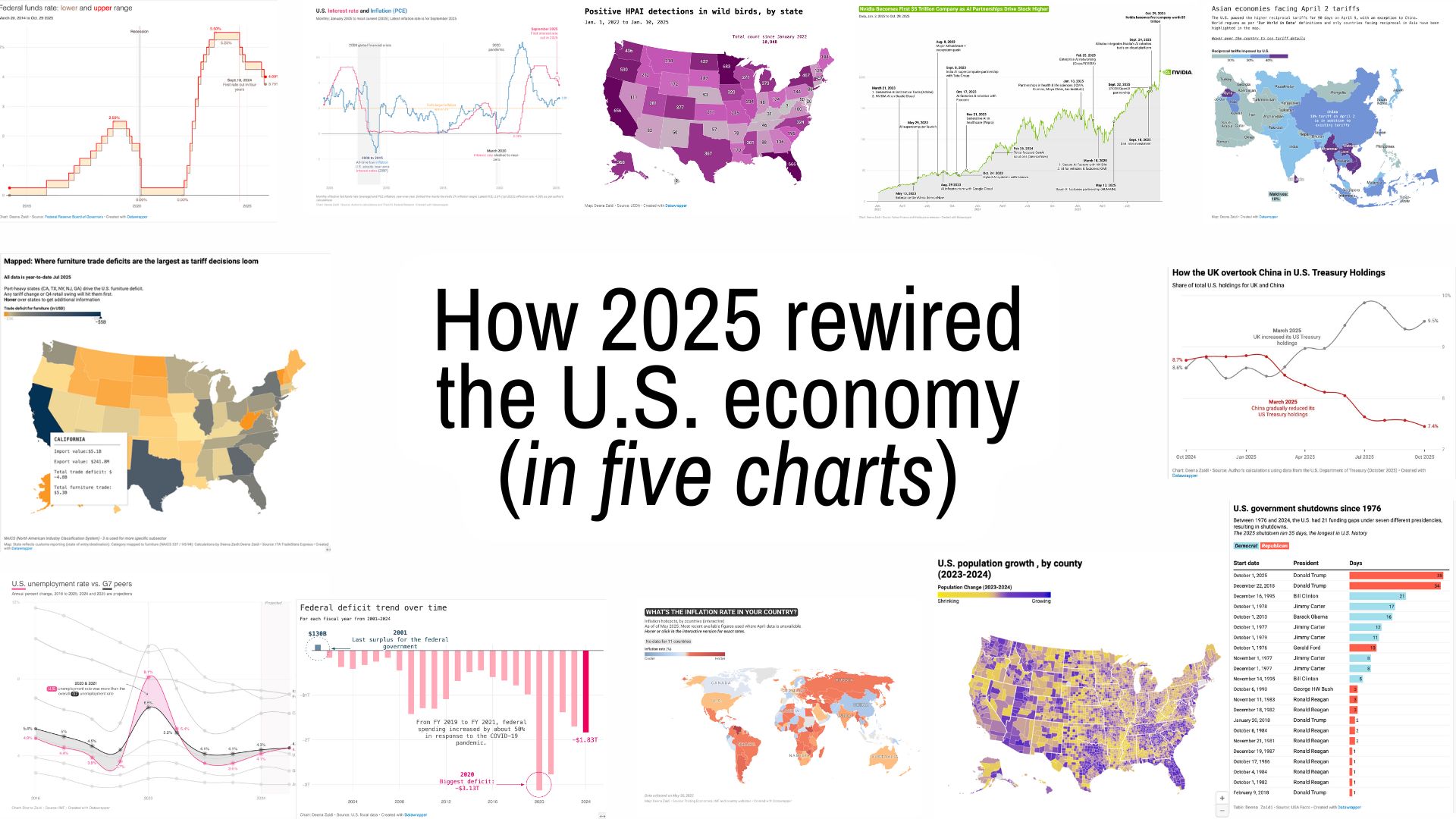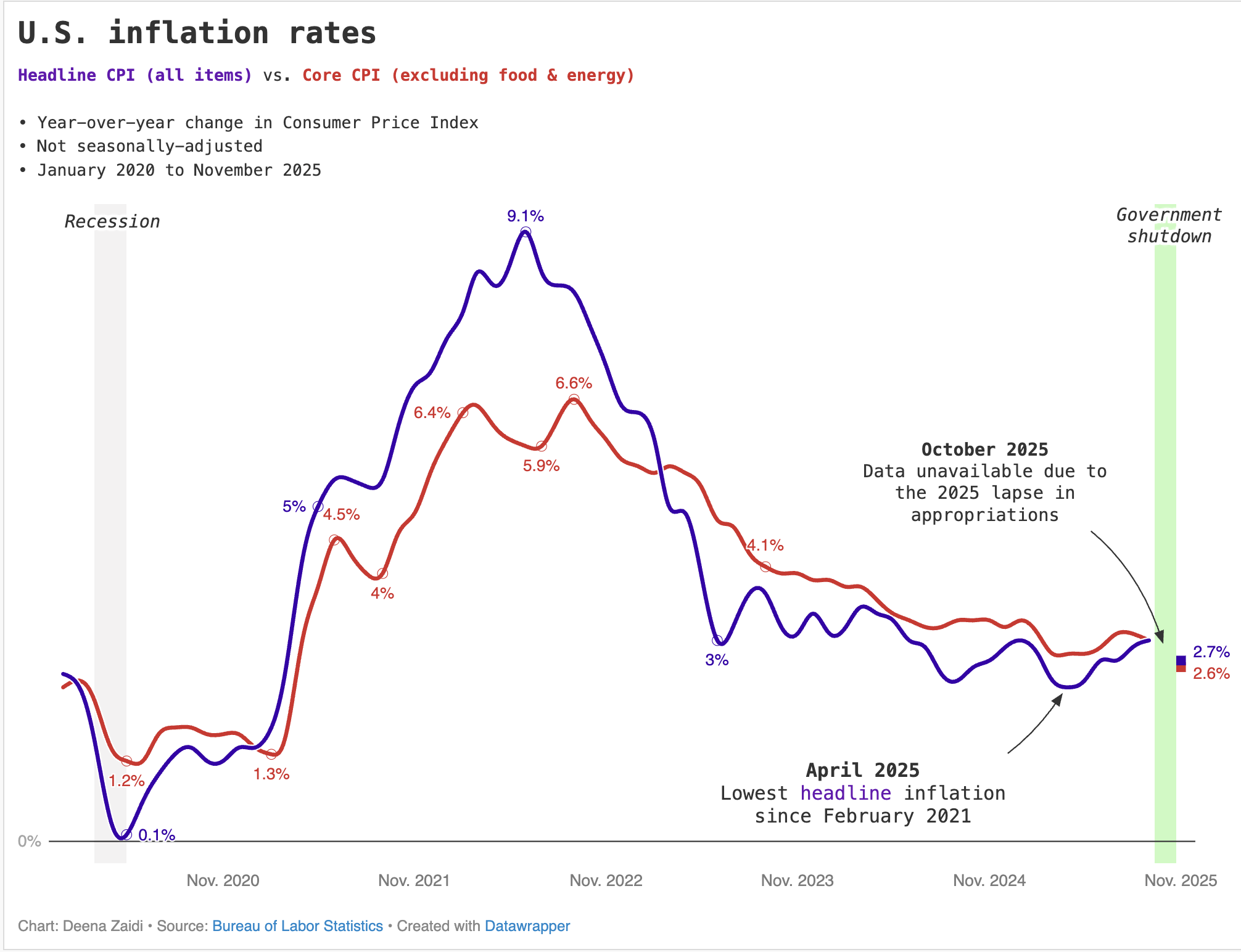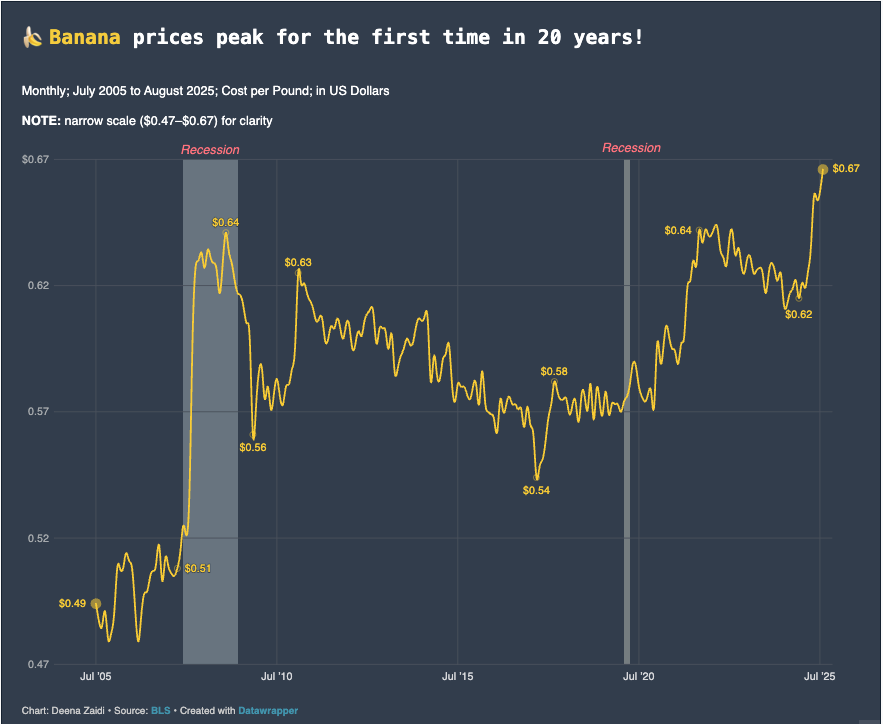U.S. food inflation has cooled sharply from its pandemic-era peak — but the latest data come with an unusual warning label.

Data & financial journalist covering global economics and policy

U.S. food inflation has cooled sharply from its pandemic-era peak — but the latest data come with an unusual warning label.

In 2025, the U.S. economy didn’t simply cool or rebound but changed in ways that were visible in the data itself.
A shutdown distorted inflation, tariffs reset global trade, U.S. debt buyers quietly swapped places, and food prices surged. I pick five charts that captured how policy and politics reshaped the American economy in 2025.

U.S. inflation cooled sharply in November, but the 2.7 percent reading is not considered official after a government shutdown forced changes in how the CPI was calculated.

The August inflation data overlaps with President Trump’s latest round of tariffs on major U.S. trading partners. But while the direct impact is up for debate, beef’s surge suggests tariffs may already be filtering into consumer prices.